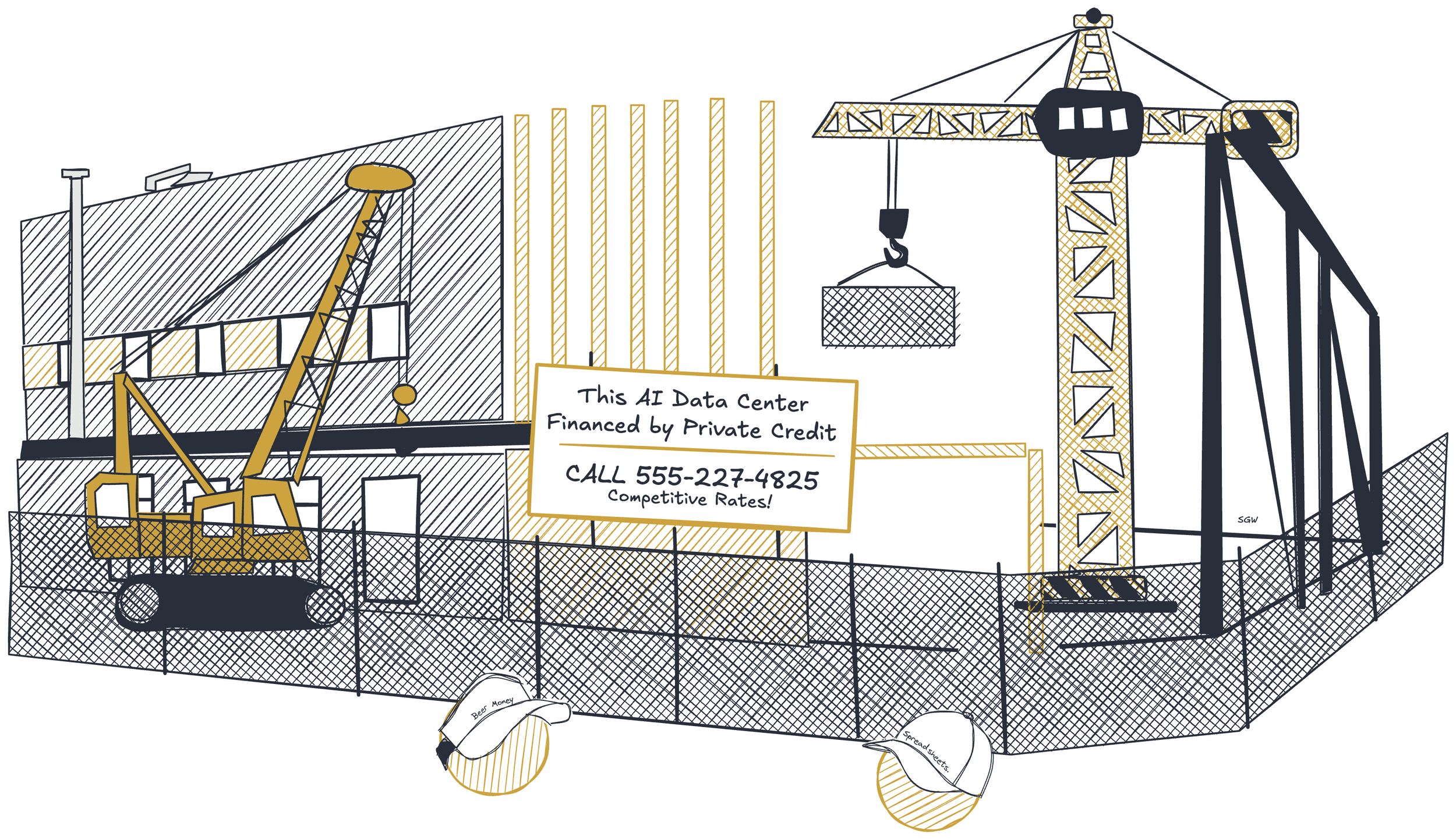Meta Debt
I have to say, I was a little blown away by the recent revelation that Meta recently closed the largest single private-credit raise ever, pocketing $26B at SOFR plus 400bps (so call it 8% to 9%) to partially fund its $65B expansion of AI infrastructure. First, it surprised me that it was a private placement. Second, that the interest rate was what it was (on both sides). And third, that they got a 10-year duration. Why?
Well, Meta is a public company, and it used to be that the whole point of being public was that you could raise more money from investors with deeper pockets at a lower cost of capital than anywhere else. After all, Meta is a nearly $2T company trading for approximately 30x earnings with bonds yielding 4% to 5% to maturity. This means investors seem pretty happy to own a piece of it and would imply a cost of capital that – depending on your assumptions – is about half of what Meta did this private debt deal at.
But regulators have gummed up the works and I guess it now takes so much time and disclosure to file all the paperwork a company needs to raise money publicly that Meta – a company that once almost missed the mobile revolution and probably remains terrified by that fact – was willing to incur significant additional cost to bank the billions it believes it needs now to keep pace in the AI arms race.
As for the lenders, handing Meta $26B for 10 years at 8% to 9% doesn’t seem like a great risk-adjusted return profile? Yes, I understand that Meta is a nearly $2T company that earned more than $60B last year, so the forecasted coverage ratio here probably isn’t very concerning, but Meta’s appetite to spend in this area won’t wane anytime soon, the obsolescence risk on what it’s getting for that spend is real (and it will definitely be obsolete in less than 10 years), and the point of the technology the company is using the capital to fund is in many ways to disrupt the core business that earns that $60B annually. What’s more, each one of these risks is compounded as capital providers to AI developers provide more and more capital to AI developers.
If you haven’t read Capital Returns by Edward Chancellor, I recommend it. One of the points it makes is that there is “an inverse relationship between capital expenditure and investment returns.” This isn’t to denigrate AI technology, which is promising, but rather to point out that allocators shouldn’t settle for lower returns even as competition and operating risks in a sector increase.
Historically, that’s never worked out well, but maybe this will be the first time it’s different.
– Tim
Sign up below to get Unqualified Opinions in your inbox.
The information, opinions, and views presented in this publication are provided solely for general informational and educational purposes. They are of a general nature, have not been tailored to the specific circumstances of any individual or entity, and do not constitute a comprehensive statement of the matters discussed. This material should not be interpreted or relied upon as investment, legal, tax, accounting, regulatory, or other professional advice, and nothing in this publication is intended to be or should be construed as such. You should obtain advice from your own professional advisors regarding the applicability of the information to your particular circumstances.
The views and analyses expressed are those of the author and do not necessarily represent or reflect the views, opinions, policies, or positions of Permanent Equity Management, LLC, its officers, directors, employees, affiliates, or portfolio companies, or of any person or entity with whom the author may be affiliated. Permanent Equity Management, LLC makes no representation or warranty, express or implied, as to the accuracy, completeness, timeliness, or suitability of the information contained herein and expressly disclaims any liability for errors or omissions.
This publication is not, and should not be construed as, an offer to sell, a solicitation of an offer to buy, or a recommendation of any security, financial instrument, or other product. It does not form the basis of any contract and does not create a fiduciary, advisory, or client relationship with Permanent Equity Management, LLC. Any examples or references to third-party content are for illustrative purposes only and do not constitute an endorsement. Permanent Equity Management, LLC is not responsible for the availability, accuracy, or content of third-party materials. Past performance is not indicative of future results. Any forward-looking statements are inherently uncertain and subject to change.


